| |
 Coat-of-arms of the old University of Louvain[1] | |
| Latin: Studium Generale Lovaniense;[2] Academia Lovaniensis;[3] Universitas Lovaniensis[4] | |
| Active | 1425–1797 |
|---|---|
| Location | , |
The Old University of Leuven (or of Louvain) is the name historians give to the university, or studium generale, founded in Leuven, Brabant (then part of the Burgundian Netherlands, now part of Belgium), in 1425. The university was closed in 1797, a week after the cession to the French Republic of the Austrian Netherlands and the principality of Liège (jointly the future Belgium) by the Treaty of Campo Formio.
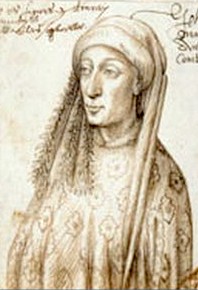
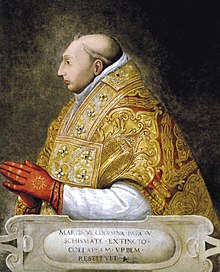
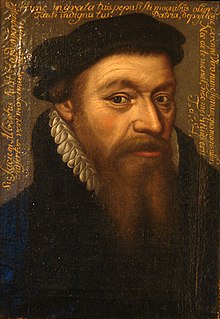

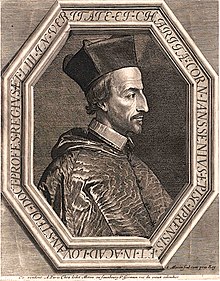
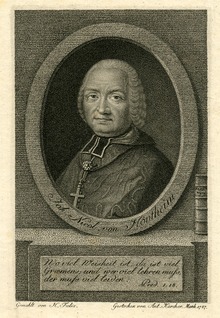

The name was in medieval Latin Studium generale Lovaniense[9] or Universitas Studii Lovaniensis,[10] in humanistical Latin Academia Lovaniensis,[11] and most usually,[12] Universitas Lovaniensis,[13] in Dutch Universiteyt Loven[14] and also Hooge School van Loven.[15]
It is commonly referred to as the University of Leuven or University of Louvain, sometimes with the qualification "old" to distinguish it from the Catholic University of Leuven (established 1835 in Leuven). This might also refer to a short-lived but historically important State University of Leuven, 1817–1835.
- ^ Nelissen, Marc (2000). "Leuven, Rome en Brabant". In Nelissen, Roegiers; van Mingroot, Eric (eds.). De stichtingsbul van de Leuvense universiteit, 1425-1914. Leuven: Leuven University Press. p. 70.
de universiteit voerde het stadswapen van Leuven, een dwarsbalk van zilver op een veld van keel, maar voegde in de rechter bovenhoek van het schild een nimbus toe van waaruit een hand een opengeslagen boek aanreikte.
- ^ "Search". Internet Archive.
- ^ "Search". Internet Archive.
- ^ "Search". Internet Archive.
- ^ Nicolaus Vernulaeus, Academia Lovaniensis, Louvain, Petrus Sassenus, edition of 1667, p. 1.
- ^ Georgius Hagelgans, Orbis literatus academicus Germanico-Europaeus, Francfort, 1737, in-fol., p. 30.
- ^ Paul Duchaine, La franc-maçonnerie belge au XVIIIe siècle, Brussels, 1911, p. 103: "dans la suite plusieurs professeurs (de Louvain) et plusieurs étudiants se firent encore initier aux mystères maçonniques, Fery (N. B. Martin François Joseph Fery, professeur de philosophie à Louvain) et Lambrechts, Verhulst et Van der Stegen notamment".
- ^ Adolphe Cordier, Histoire de l'ordre maçonnique en Belgique, Mons, 1854, p. 337: "Tableau des membres de la loge la Vraie et Parfaite Harmonie à Mons: 117: Lambrechts, professeur de droit à l'université de Louvain, Init., 1778".
- ^ In the act of approbation of Pope Martin V: "Generale literarum Studium in eodem Oppido ordinari desiderant" et "in dictis Studiis generalibus".
- ^ In the act of approbation of Pope Martin V: "Rector Universitatis Studii".
- ^ For example: Nicolaus Vernulaeus, Academia Lovaniensis. Ejus origo, incrementum, viri illustres, res gestae, Lovanii, 1627; Privilegia Academiae Lovaniensis per Summos pontifices et Supremos Belgii Principes concessa, Lovanii, apud Aegidium Denique, 1728.
- ^ Rector et Universitas Lovaniensis.
- ^ For example: Bossuet, Jacques Bénigne (1864), Œuvres complètes de Bossuet, Paris: F. Lachat & Louis Vivès, p. 247: "Epistola LXV Rector Et Universitas Lovaniensis ad Bossuetum"; Jan Frans Van De Velde (1829), Nova et absoluta collectio synodorum, p. 171: "seu in Universitatibus, praecipuè Lovaniensi, alios non habuisse Magistros, quam errorum similium osores, de quo omnibus Dioecesanis praecipua, et communis debet esse vigilantia : sanè famosa Universitas Lovaniensis".
- ^ For example: Privilegia Academiae Lovaniensi per summos pontifices ..., Louvain, 1728, p. 95: "Gesien het voorschreven Advies, wiert versoght Advies vanden Conservateur vande Privilegien der Universiteyt Loven"; J. B. Lameere (1829), Beschryf van oud en nieuw Loven, gevolgd van de lyst der primussen van de oude Universiteyt Loven, 1829.
- ^ For example: Beschryving der stadt Schoonhoven, 1762, p. 458: "De bovengenoemde Heer ... stigte in het jaar 1557 twee Beursen in de Hooge School van Loven".